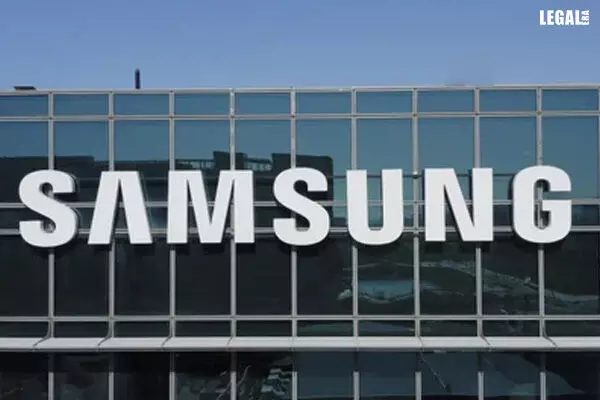- Home
- News
- Articles+
- Aerospace
- Artificial Intelligence
- Agriculture
- Alternate Dispute Resolution
- Arbitration & Mediation
- Banking and Finance
- Bankruptcy
- Book Review
- Bribery & Corruption
- Commercial Litigation
- Competition Law
- Conference Reports
- Consumer Products
- Contract
- Corporate Governance
- Corporate Law
- Covid-19
- Cryptocurrency
- Cybersecurity
- Data Protection
- Defence
- Digital Economy
- E-commerce
- Employment Law
- Energy and Natural Resources
- Entertainment and Sports Law
- Environmental Law
- Environmental, Social, and Governance
- Foreign Direct Investment
- Food and Beverage
- Gaming
- Health Care
- IBC Diaries
- In Focus
- Inclusion & Diversity
- Insurance Law
- Intellectual Property
- International Law
- IP & Tech Era
- Know the Law
- Labour Laws
- Law & Policy and Regulation
- Litigation
- Litigation Funding
- Manufacturing
- Mergers & Acquisitions
- NFTs
- Privacy
- Private Equity
- Project Finance
- Real Estate
- Risk and Compliance
- Student Corner
- Take On Board
- Tax
- Technology Media and Telecom
- Tributes
- Viewpoint
- Zoom In
- Law Firms
- In-House
- Rankings
- E-Magazine
- Legal Era TV
- Events
- Middle East
- Africa
- News
- Articles
- Aerospace
- Artificial Intelligence
- Agriculture
- Alternate Dispute Resolution
- Arbitration & Mediation
- Banking and Finance
- Bankruptcy
- Book Review
- Bribery & Corruption
- Commercial Litigation
- Competition Law
- Conference Reports
- Consumer Products
- Contract
- Corporate Governance
- Corporate Law
- Covid-19
- Cryptocurrency
- Cybersecurity
- Data Protection
- Defence
- Digital Economy
- E-commerce
- Employment Law
- Energy and Natural Resources
- Entertainment and Sports Law
- Environmental Law
- Environmental, Social, and Governance
- Foreign Direct Investment
- Food and Beverage
- Gaming
- Health Care
- IBC Diaries
- In Focus
- Inclusion & Diversity
- Insurance Law
- Intellectual Property
- International Law
- IP & Tech Era
- Know the Law
- Labour Laws
- Law & Policy and Regulation
- Litigation
- Litigation Funding
- Manufacturing
- Mergers & Acquisitions
- NFTs
- Privacy
- Private Equity
- Project Finance
- Real Estate
- Risk and Compliance
- Student Corner
- Take On Board
- Tax
- Technology Media and Telecom
- Tributes
- Viewpoint
- Zoom In
- Law Firms
- In-House
- Rankings
- E-Magazine
- Legal Era TV
- Events
- Middle East
- Africa
Consumer Panel Rules in Favour of Consumer in Case Against Samsung Over Service Deficiency

Consumer Panel Rules in Favour of Consumer in Case Against Samsung Over Service Deficiency
The Ernakulam District Consumer Disputes Redressal Commission, presided over by President D.B. Binu and members V. Ramachandran and Sreevidhia. T.N. ruled in favour of a consumer in a complaint against Samsung India. The Commission determined that the manufacturer's inability to offer spare parts shortly after purchase raised concerns about their commitment to after-sales service, constituting a deficiency in service.
A consumer filed a complaint against Samsung India alleging a deficiency in service related to a refrigerator purchase. The complainant purchased a Samsung refrigerator with a 10-year compressor warranty. Despite undergoing three repairs, the refrigerator continued to malfunction, with the freezer eventually failing due to a compressor issue. However, Samsung claimed they no longer had spare parts for the specific model and offered minimal compensation, which the consumer rejected.
The complainant argued that Samsung was obligated to provide spare parts for the product for at least 10 years based on licensing conditions. Due to the ongoing issues and Samsung's inaction, the consumer was forced to purchase a new refrigerator. He sought a refund of the original purchase price (₹72,000) with interest, along with ₹50,000 compensation for mental distress, financial losses, and hardships caused by the lack of a functional refrigerator for an extended period. The complaint requested all reliefs be granted, including any associated costs.
Samsung maintained they fulfilled their service obligations. In response to the initial cooling concerns, they claim a service engineer replaced the heater and compressor within the warranty period. However, they attribute subsequent cooling issues to internal leakage outside the warranty due to alleged physical damage and mishandling by the complainant.
As a resolution, Samsung offered a 65 per cent goodwill refund. The complainant rejected this, seeking full compensation. Samsung denied any further liability, arguing the complainant's actions caused the problems and requested the Commission to dismiss the complaint.
The Commission noted that the manufacturer acknowledged the defect was irreparable. The complainant argued the 10-year licensing requirement for spare parts meant failing to provide them constituted a service deficiency.
Considering the product's repeated issues, evidence, and unaddressed warranty concerns, the Commission drew upon two key precedents. In Shamsher Kataria v. Honda Siel Cars Limited& Ors, limiting consumers to authorised dealers was deemed problematic. Additionally, Sanjeev Nirwani v. HCL established a court ruling that companies must offer spare parts beyond warranty periods, or face unfair trade practice allegations.
Based on these precedents and the manufacturer's inability to provide parts shortly after purchase, the Commission concluded their post-purchase service commitment was deficient.
The Commission ordered the manufacturer to compensate the complainant with ₹57,600, representing the original purchase price (₹72,000) minus a 20 per cent depreciation for usage. Additionally, the manufacturer must pay ₹30,000 as compensation for the deficiency in service, unfair trade practices committed, and the mental and physical hardships endured by the complainant. Finally, the manufacturer is liable for ₹10,000 to cover the cost of proceedings.



